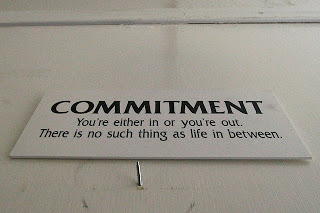Free Lessons
No, don’t ask me for permission
A few people wrote in after a recent post and mentioned that they feel guilty about changing written arrangements (such as piano offertories or choir pieces). Let me take a moment to relieve you of that guilt and tell you this: the idea that you can’t change music is almost always completely without merit.
I am sure that there are some arrangers out there that will tell you differently but I don’t know any. For example, James Koerts will not be offended for sure. And I recently heard Heather Sorenson talking about the issue and she said exactly what I would say: keep the important things intact (on a choir piece, that means harmony, tempo and overall feel) but feel free to change things within that framework.
The idea that you need to play any church music exactly as written is a very bad one. I know where it comes from; we all do. It comes from playing classical music as a child and being told over and over that we need to play every note, every articulation, every everything exactly as written.
I went through those days myself just like you. But enough is enough. That perspective is ancient history now. Lose it or it will get in your way as you try to do everything you can as a church musician.
And let go of the guilt too. There are some very good reasons why you should look at written music as merely suggestive.
1) It may be harder than it needs to be.
In the world of choral arranging, some arrangers are clearly strong pianists and consequently, their piano parts look like Chopin etudes. Don’t feel guilty that you can’t play a piece like that as written and don’t feel lazy if you don’t want to invest 20 hours of practice into learning it. I have said this before and here it is again: pianists that arrange need to work extra hard to make their written music accessible. There are no bonus points for creating music that is virtually unplayable.
2) It may be umm…. not very good.
On the other end of the spectrum, you have arrangers who specialize in choral parts and write the piano part as an afterthought. They don’t play the piano and they don’t understand the piano. What they end up writing is often bad for any number of reasons.
I know there is a perception that if music is published, it is good music. Nothing is further from the truth, especially in this world of low-budget and self publishing. If you find yourself playing something and not liking it very much, guess what? It might not be you…
3) You will play better.
Very often, replacing just a few notes in a treatment or tweaking a rhythm slightly will help you feel more comfortable and will help you play much better. There are technical things that you do well and things you don’t do so well. I am the same way. So why not tweak things you are not comfortable with so that you more capable of playing well?
4) You have a life outside of church music.
I was reading an article the other day about the lack of commitment in most church musicians and they showed this picture.

While this slogan sounds good and is actually true in some aspects of life, it is not a good slogan for church musicians. Volunteer church musicians that have occupations and families cannot afford to be 100% committed to their church music.
Nor should they be 100% committed to their church music…
This is the most important reason why you should feel free to change printed music without guilt and remorse. Some of you tirelessly juggle jobs, family, children and other responsibilities and just don’t have a lot of time for music. Trust me; you are not lazy because you look for a few shortcuts and change someone else’s music to make it a little easier.
Don’t think I don’t do this. There is a piece of choral music that we do at my church every year that is constant 2’s against 3’s and 3’s against 4’s. The writer is talented and I like her. But I believe that particular piece of music is unplayable. At least it is unplayable without more practice time than I am willing to dedicate to it.
So long ago, I decided I was not going to go to the trouble of learning it as written. Frankly, I don’t think it needs so many 2’s against 3’s, and I certainly don’t think it makes much difference if I play them or not. So, I don’t really try. That is my pragmatic solution to the problem of not having a lot of hours to give to practicing choral music.
I still sleep at night. And if you change the music you play, you don’t need to lose any sleep over it either. If you want to change mine, you don’t need my permission or blessing. Just do it.
